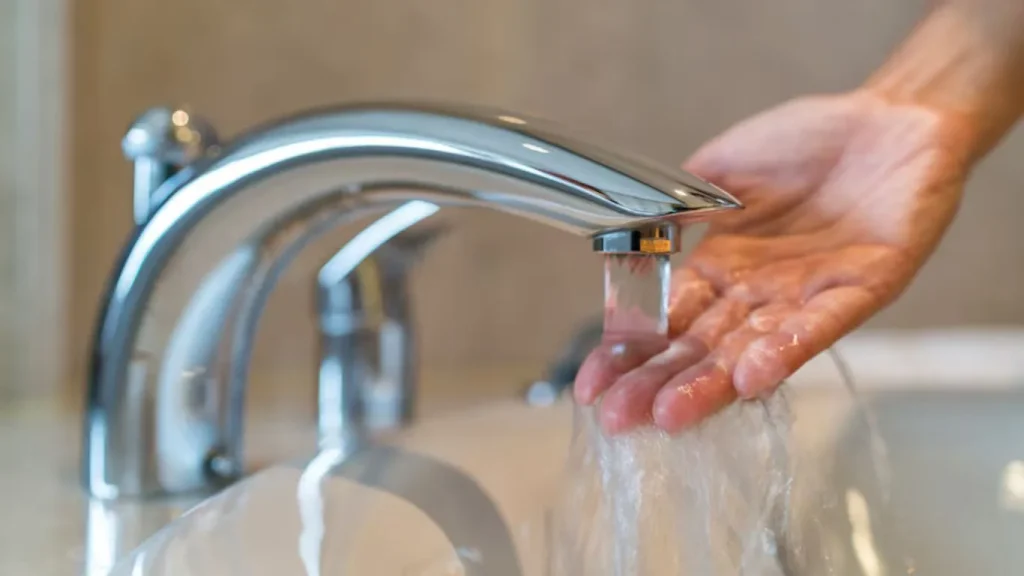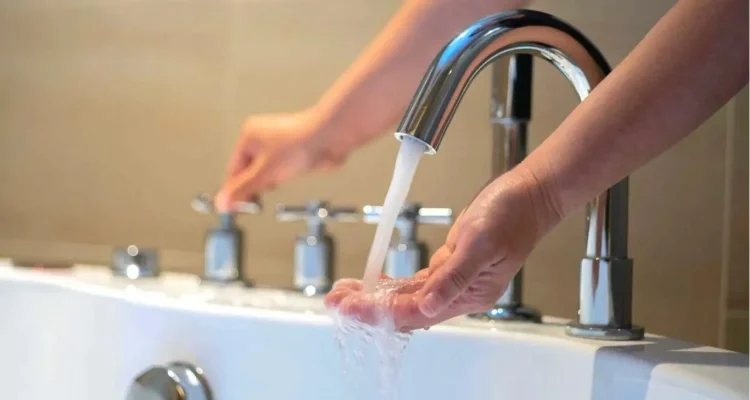Hot water is essential for our daily routines, from showering to washing dishes. When you turn on the tap and find only cold water, it can be frustrating and inconvenient. Understanding why you don’t have hot water can help you troubleshoot and fix the problem quickly. Let’s dive into the common reasons behind this issue and how you can address them.

Understanding Your Hot Water System
Types of Hot Water Systems
Tankless Water Heaters
Tankless water heaters, also known as on-demand water heaters, heat water directly without storing it. When you turn on the hot water tap, cold water travels through a pipe into the unit, where a gas burner or electric element heats the water. Tankless water heaters are energy-efficient but may struggle to provide hot water if multiple outlets are in use simultaneously.
Storage Water Heaters
Storage water heaters are the most common type. They consist of an insulated tank where water is heated and stored until needed. While these heaters can provide a large volume of hot water, they can also run out, leading to periods of no hot water until the tank refills and reheats.
Heat Pump Water Heaters
Heat pump water heaters use electricity to move heat from one place to another instead of generating heat directly. They are energy-efficient but work best in warm climates. In colder areas, they may struggle to maintain consistent hot water.
Solar Water Heaters
Solar water heaters use energy from the sun to heat water. They are environmentally friendly and can significantly reduce energy costs. However, their efficiency depends on the availability of sunlight, and they often require a backup system for cloudy days.
Common Issues and Troubleshooting
Power Supply Problems
Electrical Water Heaters
For electric water heaters, power supply issues are a common cause of no hot water. Check your circuit breaker to ensure it hasn’t tripped. If it has, reset it and see if that resolves the problem. If the breaker trips again, there may be a wiring issue that needs professional attention.
Gas Water Heaters
Gas water heaters rely on a steady supply of natural gas. If your gas valve is turned off or there’s an issue with your gas line, your heater won’t function. Make sure the gas valve is open and that there are no gas leaks. If you suspect a leak, contact a professional immediately.
Thermostat Malfunctions
Setting Issues
Thermostats regulate the temperature of your water heater. If the thermostat is set too low, you won’t get hot water. Check the settings and adjust them to your desired temperature.
Faulty Thermostats
A malfunctioning thermostat can also cause your heater to stop working. If adjusting the settings doesn’t help, the thermostat might need to be replaced. This task can be complex, so consider hiring a professional.
Heating Element Failures
Signs of a Broken Heating Element
Electric water heaters use heating elements to warm the water. If one or both elements fail, you’ll experience a lack of hot water. Signs of a broken element include water that heats slowly or is only lukewarm.
Replacing the Heating Element
Replacing a heating element involves turning off the power, draining the tank, and swapping out the faulty element. If you’re comfortable with DIY repairs, you can do this yourself. Otherwise, it’s best to call a technician.
Pilot Light Issues (Gas Heaters)
How to Relight the Pilot Light
If you have a gas water heater, a common issue is a pilot light that has gone out. Follow the manufacturer’s instructions to relight it. Typically, this involves turning the gas valve to the pilot position, holding down the reset button, and using a lighter to ignite the pilot.
When to Call a Professional
If the pilot light won’t stay lit, there could be a problem with the thermocouple or gas control valve. These components require professional diagnosis and repair.
Sediment Build-Up in the Tank
Effects of Sediment
Over time, minerals in your water can settle at the bottom of your water heater tank, forming sediment. This sediment can reduce the efficiency of your heater and lead to overheating, which can damage the tank.
Flushing the Water Heater
To remove sediment, you need to flush your water heater regularly. Turn off the power or gas, connect a garden hose to the drain valve, and allow the tank to empty. Refill and repeat if necessary. Regular flushing can extend the life of your heater and maintain its efficiency.
Preventative Maintenance
Regular Inspections
Schedule annual inspections for your water heater to identify and address potential issues before they become serious problems. A professional can check the thermostat, heating elements, and other components to ensure they are functioning correctly.
Flushing the Tank
As mentioned earlier, flushing the tank helps remove sediment build-up. Aim to do this at least once a year, or more often if you have hard water.
Checking the Anode Rod
The anode rod helps prevent tank corrosion. Over time, it can wear out and need replacement. Check the rod annually and replace it if it’s significantly corroded.
When to Call a Professional
Identifying When It’s Time
Some water heater issues are too complex or dangerous to handle on your own. If you’re unsure about diagnosing or fixing a problem, it’s best to call a professional.
Finding a Reliable Technician
Look for licensed and insured technicians with good reviews. Ask for recommendations from friends and family, or search online for reputable companies in your area.
FAQs
Why does my water heater keep turning off?
Your water heater might be turning off due to a faulty thermostat, a malfunctioning heating element, or sediment build-up in the tank. Check these components and consider calling a professional if the problem persists.
How often should I flush my water heater?
It’s recommended to flush your water heater at least once a year. If you have hard water, you may need to do it more frequently to prevent sediment build-up.
What should I do if my pilot light won’t stay lit?
If your pilot light won’t stay lit, there may be an issue with the thermocouple or gas control valve. Try relighting it according to the manufacturer’s instructions. If it still won’t stay lit, call a professional.
Can I fix a broken thermostat myself?
Fixing a thermostat can be complex and may involve electrical work. If you’re comfortable with DIY repairs and have the necessary knowledge, you can attempt it. Otherwise, it’s safer to hire a professional.
How can I extend the life of my water heater?
Regular maintenance is key to extending the life of your water heater. Flush the tank annually, check the anode rod, and schedule professional inspections to catch and address issues early.
Conclusion
Hot water is essential for comfort and hygiene, and losing it can be a major inconvenience. By understanding your hot water system and common issues that can arise, you can troubleshoot effectively and know when to call a professional. Regular maintenance, such as flushing the tank and checking the anode rod, can also help keep your water heater in good working order.


Congratulation!